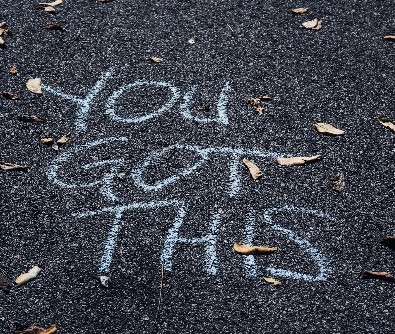It’s great to be able to help a friend, neighbor, or family member in a time of need. If you have ever been the recipient of a home-baked meal during a family emergency, a gift card when you lost your job, or strangers offering to fix your flat tire (it happened to me in college in the winter), you know how good it feels to have your faith in humanity restored and know that even if just for a little bit, things are going to be okay. You are going to survive for another day.
The evil twin of helping is enabling. It’s favorite disguise is good will and perfectionism. You see, from a young age children slowly and with lots of mistakes learn to do things on their own. In healthy parenting, parents allow their children to explore (within reason), try new things (according to their age level and risk), and take on projects. Parents can challenge their children to do their developmental best, thus letting them know that they believe in them.

When my daughter was younger, I saw too many parents on the playground not letting them go down the slide by themselves, not letting them experience the soothing and balancing effects of nature (mud, wind, rain, etc), not letting their babies cry even for moment as they turned away for a minute, pacifying their toddlers with screen distractions, and not letting their babies experience the effects of gravity as they tried learning to walk on soft grass. In other words, enabling starts at a young age.
The effect of enabling is crippling. In adulthood, it leads to lack of confidence, anxiety, anger issues, depression, lack of motivation, panic attacks, and poverty. When people are constantly told, “You can’t do this, you need my help,” through other people’s words and actions, there are a variety of responses. Some turn to anger and acting out as a way to put up walls and fiercely protect their natural need for independence. Others feel lost and helpless, so they learn to manipulate others into doing things for them, all the while suffering from depression and low self-esteem. They are really good at looking like helpless victim because that is the role they were taught from a young age. Other people may internalize and believe that they are indeed helpless. This can lead to a variety of mental health problems including OCD, bipolar disorder, and dependent personality disorder all based on an intense need to get real needs met in unhealthy ways, resulting in feelings of helplessness, loss of control, and interpersonal problems.
If you have been an enabler, it is never too late to turn to healthier ways of helping. Focus first on self-care for yourself, and acknowledge the effects of enabling. Find ways to achieve balance in your life, and how to truly build up others in a way that acknowledges human freedom and capability and does not deplete or diminish you or the person receiving your help.
If you have been shackled by the chains of enabling by others in your life, it’s never too late to find your freedom. Learn to set good boundaries and say no. Develop healthy social relationships with others who respect your free will. Take credit for the hard work that you put into developing yourself. Set achievable goals for yourself, and don’t be afraid to ask for help when you are ready, from the right people.
